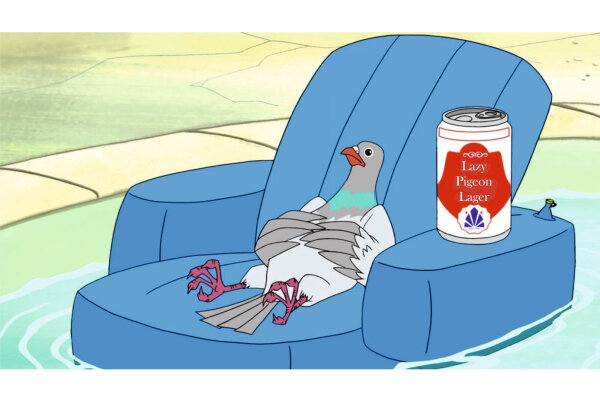2018-06-28

Do animals prefer to earn their food by hard work instead of getting it for free? Well, many studies indeed show that rats may prefer earned over free food. This unexpected phenomenon is called “contra-freeloading”. In rats the transmitter dopamine—which is involved in incentive motivation and effort— facilitates the occurrence of this preference. Does this also apply to pigeons? Biopsychologists from Bochum tested this in pigeons of which some received a dopamine D2/3 receptor agonist. The birds were exposed to a bowl that contained grains only (easy food) and a bowl that contained grains covered with sawdust (harder food). The animals were tested under various conditions (hungry vs. satiated, successive vs. simultaneous presentation of the options, different sequences of presentation, different doses of dopamine receptor agonist, etc.). There was a single consistent result: Pigeons preferred easy food over difficultly earned one. The scientists could show that this was not due to the option that their drug intervention did not work: It worked; but, different from rats, its action consisted of reducing—rather than magnifying— the attractiveness of the harder food option. Overall, pigeons seem to enjoy chilling more than investing effort. Sounds familiar, isn’t it?

Do animals prefer to earn their food by hard work instead of getting it for free? Well, many studies indeed show that rats may prefer earned over free food. This unexpected phenomenon is called “contra-freeloading”. In rats the transmitter dopamine—which is involved in incentive motivation and effort— facilitates the occurrence of this preference. Does this also apply to pigeons? Biopsychologists from Bochum tested this in pigeons of which some received a dopamine D2/3 receptor agonist. The birds were exposed to a bowl that contained grains only (easy food) and a bowl that contained grains covered with sawdust (harder food). The animals were tested under various conditions (hungry vs. satiated, successive vs. simultaneous presentation of the options, different sequences of presentation, different doses of dopamine receptor agonist, etc.). There was a single consistent result: Pigeons preferred easy food over difficultly earned one. The scientists could show that this was not due to the option that their drug intervention did not work: It worked; but, different from rats, its action consisted of reducing—rather than magnifying— the attractiveness of the harder food option. Overall, pigeons seem to enjoy chilling more than investing effort. Sounds familiar, isn’t it?